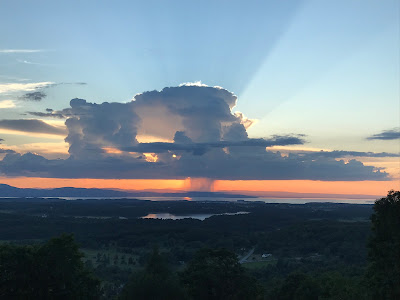June 21, 2020
The wind is still northeast, and the air is now so cold (cooled by the rain) that most have fires, and it is uncomfortably cool out of the sun, which does not shine much this forenoon.
At 12 m. it is only 59° above zero, and I am surprised to hear some toads ring, which I have not heard lately by day; as if this degree of coolness is agreeable to them.
At noon the sun comes fairly out and the wind rises, now blowing quite strong from the northeast.
At 12 m. it is only 59° above zero, See
June 21, 1856 ("Very hot day, as was yesterday, –– 98° at 2 P. M., 99° at 3, and 128° in sun. ")
I am surprised to hear some toads ring, as if this degree of coolness is agreeable to them. Compare June 21, 1852 ("I hear neither toads nor bullfrogs at present; they want a warmer night. ")
The wind is still northeast , and the air is now so cold ( cooled by the rain ) that most have fires , and it is un- comfortably cool out of the sun , which does not shine much this forenoon . Phalaris Americana ( some probably two or three days ) . It is the rankest and for its size most conspic- uous common grass . You see great dark - green islets of it by the side of , or even in , the river , where it is muddy , with the large whitish panicles ( ? ) lifted above the broad rank leaves . These are four or five feet high , very luxuriant . I first noticed elms full of dark shade at a distance some three or four days ago . As soon as they are well leafed it is seen how gracefully they droop .
At 12 м . it is only 59 ° above zero , and I am surprised to hear some toads ring , which I have not heard lately by day ; as if this degree of coolness even ( at midday ) was agreeable to them , corresponding to 62 or more at evening . At noon the sun comes fairly out and the wind rises .
June has been quite a breezy month thus far . I have waited in vain for perfectly smooth water in which to watch the bream poised over her nest . There has been almost a steady breeze or breeziness with the waving of new - leafed boughs .

 Ancient artifacts dating back roughly 7,000 years ago to 5000 B.C., were found by state archeologists on land in Rutland Town recently.
Ancient artifacts dating back roughly 7,000 years ago to 5000 B.C., were found by state archeologists on land in Rutland Town recently.